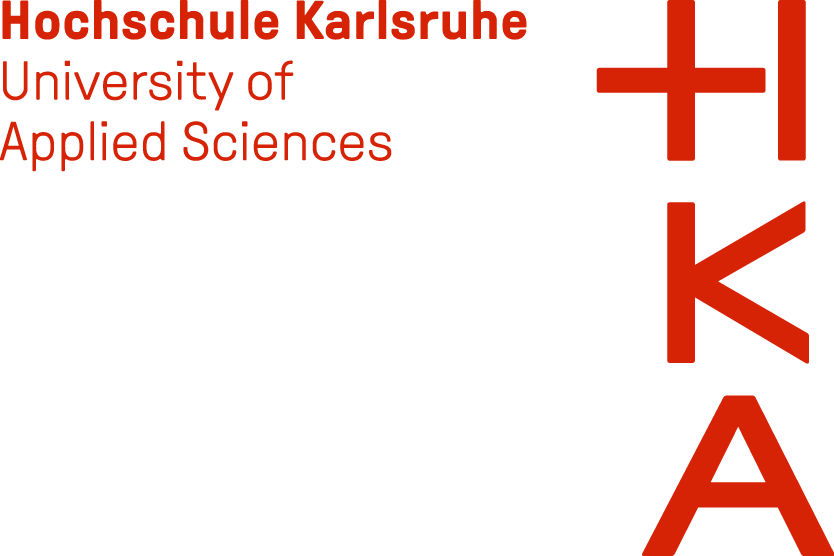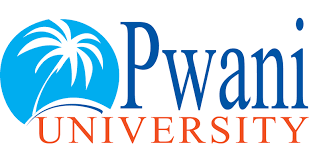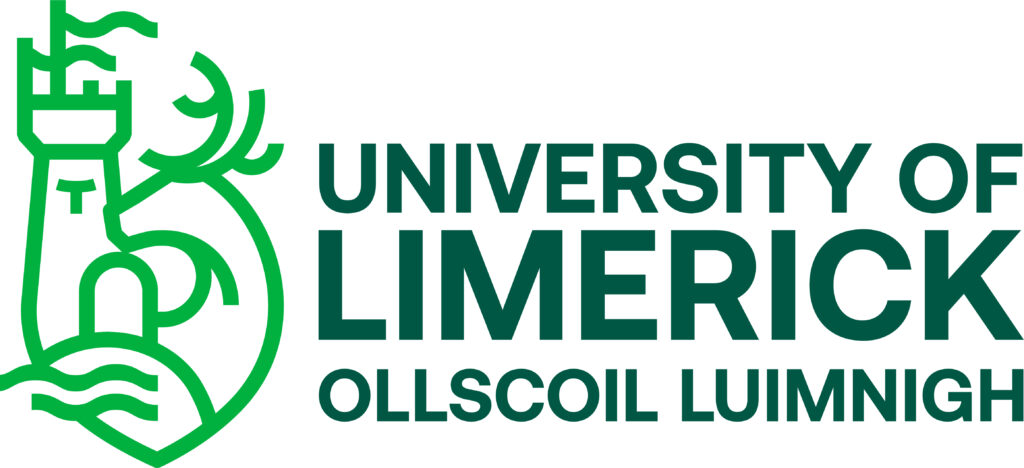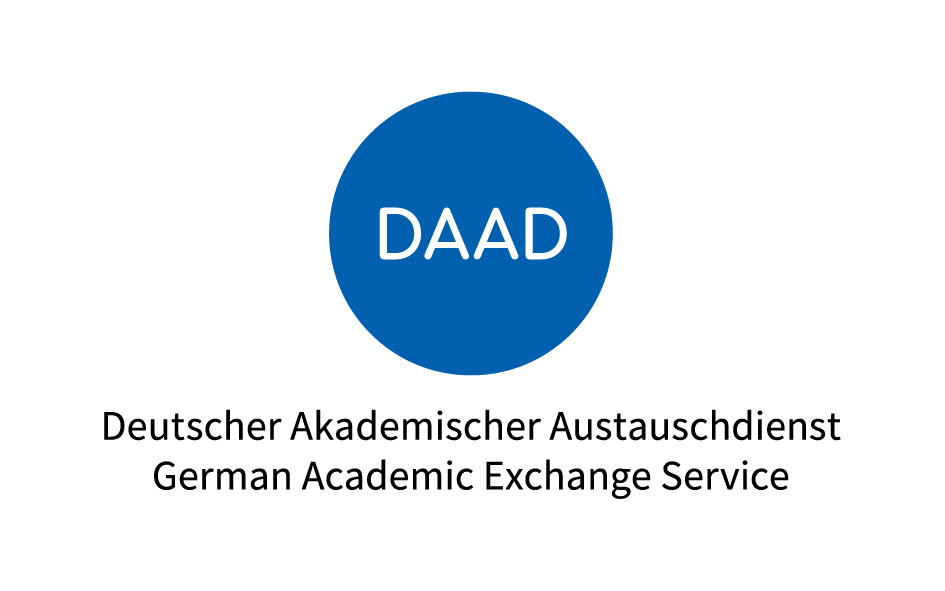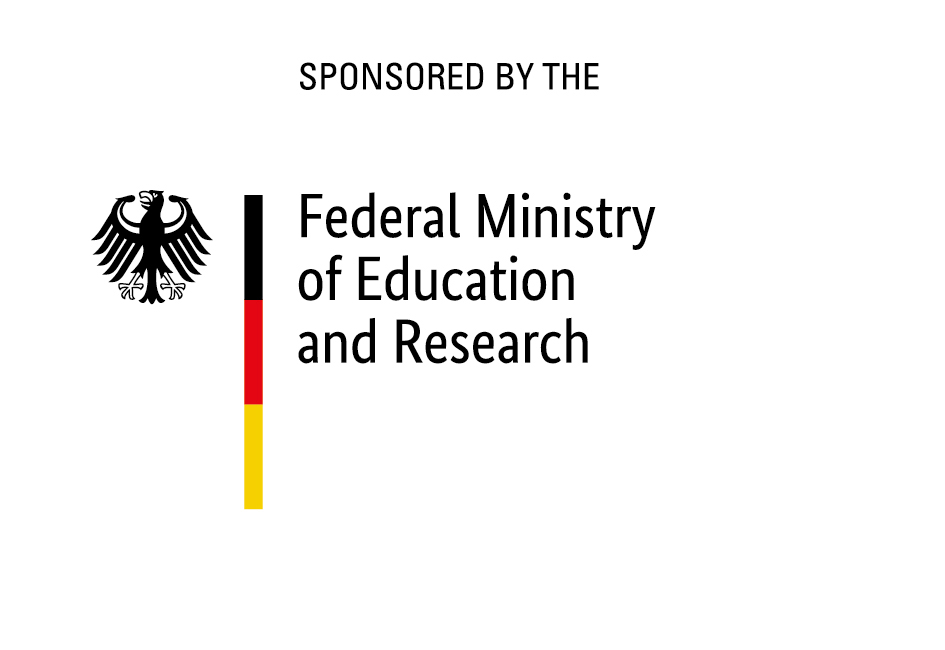Modules
Here, you will find comprehensive information about the various modules offered within the Masters in Communication and Media. Our modules are designed to provide students with a diverse and enriching academic experience in the field of Technical Communciation.
Each module features courses to which you will find detailed information including learning outcomes, indicative content, assessment methods etc.
Year 1 - Semester 1 (Intake: September 2023)
ALC G801 - Communication and Media I
Core
Contact Hours: 45 Credit Hours: 3 Pre-Requisite: None
Module Description
The module aims to introduce students to communication in the digital age in general, as well as the handling and use of different media target group-specific content.
Learning Outcomes
- Explain the relationship between communication and media.
- Describe the importance of communication in the digital age, as well as its basics.
- Identify the different media and their effects and can decide in which context which media should be used.
- Apply the principles of the content life cycle to create and structure content for adaptation to the medium and target group.
Courses
- Introduction to Communication and Media
- Introduction to Information Development Process
- Standardization in Communication and Media
- Communication Theories
This course aims to introduce the discipline of Communication and Media (technical communication) and to outline and explain the stages in the information development process. A standardized and consistent approach to information development is an essential starting point for all technical communicators. This course helps students to understand the stages and develop skills to follow these stages in real-world contexts.
Course Objectives:
- Define the discipline Communication and Media.
- Identify Communication and Media roles and skills.
Lecturer: Dr. Yvonne Cleary
This class introduces stages in the information development process. These stages sometimes happen in sequence (one after the other) and sometimes iteratively, where students will cycle back and forth between stages. The class includes some activities during the session, and students will also have one discussion forum activity.
Course Objectives:
- List and describe the stages of the information development process.
- Analyze information development models.
- Apply the stages of the information development process to a group information development assignment.
- Reflect on their experiences of using a standardized and consistent approach to information development.
Lecturer: Dr. Yvonne Cleary
This course aims at explaining the fundamental theories of communication that describe the communication phenomena, the relationships among them and arguments for them. It also involves the application one of these theories in analysis of communication process. The Theories include but are not limited to Magic Bullet Theory, Two Step Flow Theory, Multi-Step Flow Theory etc.
Course Objectives:
- Analyzing a definition of Communication, articulating the definitions level of observation, intention and normative judgement.
- Recognizing the various contexts in which communication takes place.
- Using criteria for evaluating theory to determine the relative usefulness of a communication theory.
Lecturer: Prof. Yakobo Mutiti
ALC G802 - Multilingual Workflow
Core
Contact Hours: 45 Credit Hours: 3 Pre-Requisite: None
Module Description
The 21st century society is characterized by different ethnic groups and cultures, not only in Kenya but all over the world. Therefore, the module aims to understand intra- and intercultural, verbal and non-verbal communication and different communication models in order to apply them to a target group.
Learning Outcomes
- Describe and evaluate the most important characteristics of verbal and non-verbal communication, as well as important communication models.
- Review own communicative and meta-communicative actions.
- Demonstrate the understanding of the conditions and framework of communication in the context of and between different cultures and multicultural societies.
- Demonstrate the appreciation for different cultures.
Courses
- Rule-based Writing
- Cross-cultural Communication
- Conflicts and Feedback
- German Basics
The course focuses on the question of how to improve technical writing in such a way that a specific target group understands the information clearly and effectively.
For this purpose, course objectives include the discussion of various rules on the topic of comprehensible writing. These rules are universal and can be applied in any language to write clear and concise texts.
Course Objectives:
- Discussion of various writing rules for technical communication.
- Distinction between rules for clarity, style and organization.
- Implementation of such rules and writing styles with examples.
Lecturer: Belinda Oechsler & Farina Ebel
This course is aimed at focusing upon matters of language use that are influenced by a source culture, and how such matters may be considered in cross-cultural communication. Discursive and pragmatic factors of communication are explained and analyzed in relation to the immediate communicative situation and the comparative inter-cultural parameters.
Course Objectives:
- Explain the ways in which communication in language is indeed part of social behavior: highlighting aspects of behavior that have been regarded as important.
- Discuss the characteristics of verbal and non-verbal communication: cultural variation in verbal and non-verbal communication
- Analyze the theory of Politeness as explained by Penelope Brown and Stephen Levinson; consider how this theory relates with Leech’s Politeness Principle.
- Consider the Maxims of Politeness as proposed by Geoffrey Leech: Use these maxims to evaluate and describe communicative and meta-communicative actions.
- Consider cultural interfaces of communicative behavior, and strategies to adopt in regard to ‘cultural penetration’ in cross-cultural communication.
- Appreciating cultural differences as part of the development of communicative competence in the use of Language.
Lecturer: Prof. Yakobo Mutiti
This course aims at explaining the importance of conflict management at the work place and ways of giving constructive feedback in different situations. Constructive feedback is the process of sharing observations, concerns and suggestions between persons with the intention to improve both personal and organizational performance. This course provides guidelines to developing these skills among students.
Course Objectives:
- Define what constructive feedback is used as in a management process.
- Give constructive feedback.
- Resolve conflicts encountered both in their professional as well as personal lives.
Lecturer: Dr. Elizabeth Munyaya
This course covers the basics of the german language on a beginner’s level. Course Objectives include pronunciation, which will also be practised through exercises and many dialogues.
Course Objectives:
- General basics
- Greetings (formal and informal)
- Self-introduction
- Introducing others
- Numbers
Lecturer: Alexander Muthanga Murigi
ALC G803 - Visualization
Core
Contact Hours: 45 Credit Hours: 3 Pre-Requisite: None
Module Description
In this module, learners are taught the principles for evaluation and creation of good designs. The focus is on graphics, layout and typography.
Learning Outcomes
- Evaluate graphics professionally.
- Create own graphics, under consideration of various design principles.
- Describe the basics of typography and layout and how to use them.
- Apply basic knowledge in handling graphics programs.
Courses
- Visualization Basics and Typography
- Presentation Techniques
- Professional Image Editing (Tool-based course with Gimp)
This course teaches students the principles of evaluating, creating and presenting good design for professional purposes. Emphasis is placed on graphics, layout and typography and their application in business presentations and posters. The course provides students with basic knowledge of graphics software such as the open-source, cross-platform image editor Gimp and a deeper insight into Microsoft PowerPoint. The application-oriented course includes exercises in presentation techniques and provides rhetorical skills.
Course Objectives:
- Evaluate graphics and presentations professionally
- Create their own graphics, taking into account design principles
- Describe and apply the basics of typography and layout
- Design and deliver their own presentations, taking into account the principles of design, typography and layout and the rules of rhetoric
- Apply basic skills in the use of graphics software
Lecturer: Prof. Kerstin Alexander
This course will deal with the question: What makes a good presentation?
Students will discuss the criteria of an impactful and engaging presentation adapted to the target group. They will learn how to structure their content effectively, master body language and vocal delivery, and employ visual aids in Power Point to enhance their message and deliver persuasive presentations in any professional setting.
Course Objectives:
- Organisation of a presentation (content concept, slide master, layout)
- Rhetorical structuring (argumentation strategies, information presentation, storytelling)
- Visualisation concept (use of media, fonts and colours)
- Body language vs. spoken language
- Implementation in Power Point
Lecturer: Belinda Oechsler
ALC G804 - Information Technology and Management
Core
Contact Hours: 45 Credit Hours: 3 Pre-Requisite: None
Module Description
In this module the basics of web technologies, database systems, as well as administration and publication technologies are acquired.
Learning Outcomes
- Demonstrate and apply the gained knowledge of web technologies and web programming languages.
- Analyze the methodical basics of database systems.
- Describe the importance and use of databases in the management and publication processes.
- Use the knowledge of the basics of content-management and publication technologies and principles in the production and management of information.
Courses
- Topic-based Structuring (Tool-based course with Flare)
- Flare Tutorials
- Video in Journalism
This course introduces a well-kown proven structuring method called topic-based structuring. The course is tool-based and will be implemented with the authoring tool MadCap Flare.
Course Objectives:
- What is a topic
- How to create good topics
- What are the benefits of topic-based structuring
- How can we implent topic-based structuring using a special online authoring tool, called MadCap Flare
Lecturer: Prof. Sissi Closs
This course will give you an introduction to journalistic practices in the professional world. We will discuss journalistic standards, research methods, and work processes to acquire knowledge needed to navigate the fast-paced world of journalism. The course will mainly focus on videos as form of presentation but will also cover how to tell a story through various media formats such as blogs, podcasts, and pictures.
Course Objectives:
- Tell real-life stories through visually appealing videos.
- Critically review facts and complex issues.
- Explain issues to your audience in a comprehensible and yet exciting way.
Lecturer: Felix Draeger
ALC G805 - Media Management
Core
Contact Hours: 45 Credit Hours: 3 Pre-Requisite: None
Module Description
In this module, learners are introduced to various media, their effects and management. The focus is on mass communication media, therefore social media is discussed as a powerful medium. In addition, the important aspect of gender-sensitive writing and the image of women in the media will be made clear.
Learning Outcomes
- Demonstrate skills of media production (video).
- Distinguish between different mass communication media, their functions and use.
- Explain the meaning and role, as well as the use of social media in society and for companies.
- Identify gender-appropriate content and its impact.
Courses
- Video Production (Tool-based course with DaVinci Resolve)
- Social Media Marketing
- Marketing Practice
This class teaches the basics in Video Production, following the chronological process of such. The theory will cover content planning, cinematography and sound. In a more practical part, we will focus on Video Editing, using the Editing Software DaVinci Resolve. At the end of class, students will be able to do basic editing on their own video projects.
Course Objectives:
- Content Planning
- Cinematography
- Camera Operations
- Video Editing
- Sound Editing
Lecturer: Farina Ebel & Saitabao Kaiyare
This course provides students with the knowledge and skills to develop and implement an effective strategy for social media marketing. Participants will learn how to analyse target audiences, identify objectives, and craft a cohesive social media strategy. Through hands-on exercises and case studies, students will explore various platforms, tools and tactics to optimize engagement, increase brand visibility and achieve measurable results. The overall objective of the course is to be able to create a “tangible” social media strategy that students can pitch to a potential employer.
Course Objectives:
- Understand the main requirements for a social media strategy.
- Craft a social media strategy for a potential client.
- Pitch a social media strategy effectively.
Lecturer: Ivan Santos
Year 1 - Semester 2
ALC G806 - Communication and Media II
Core
Contact Hours: 45 Credit Hours: 3 Pre-Requisite: None
Module Description
In this course, students acquire knowledge of topic-based structuring techniques, and information architecture as a basis for the distribution of target group-specific content and information.
Learning Outcomes
- Recognize the advantages of topic-based structuring and good information architecture.
- Evaluate and design own information architectures.
- Design topic-based class concepts for sample content.
- Demonstrate the use of the tools of information architecture.
- Apply the acquired competences in an own project.
ALC G807 - Research Methods in Communication
Core
Contact Hours: 45 Credit Hours: 3 Pre-Requisite: None
Module Description
The aim of this course is to prepare students in the best possible way for their own research project or master thesis. Therefore, they learn the basics and methods of research, as well as how to handle databases.
Learning Outcomes
- Describe different research methods and their characteristics.
- Structure, evaluate and process large amounts of data.
- Identify patterns, trends and correlations in data sets.
- Develop solutions for complex problems and new ideas.
- Implement the learned methods of a research in an own project later.
ALC G808 - Project Management and Entrepreneurship
Core
Contact Hours: 45 Credit Hours: 3 Pre-Requisite: None
Module Description
The course aims to strengthen the management perspective of the students and to transfer basic tools for the development and organization of projects. Furthermore, students are prepared to manage individual and organizational projects in an entrepreneurial way.
Learning Outcomes
- Identify the principles, phases and tasks of project management.
- Describe the basic concepts, Principles and approaches in entrepreneurship.
- Analyse key characteristics of successful projects.
- Develop personal project creativity and entrepreneurial initiative.
- Identify, conceptualize and develop a media related project.
- Apply basic project management principles to projects of choice.
- Apply entrepreneurship knowledge to identified media projects of choice.
Language Options
ALC G809 - Kiswahili for Communication
Elective
Contact Hours: 45 Credit Hours: 3 Pre-Requisite: None
Module Description
The aim of this course is to sensitize learners to efficient communication and to provide them with the skills to evaluate and write texts for different media that are target group oriented, standardized, consistent, adapted to the language area and understandable. The focus is on the language, Kiswahili.
Learning Outcomes
- Demonstrate the use of Kiswahili in basic communication.
- Read and demonstrate comprehension of elementary and basic Kiswahili texts.
- Write texts for particular communicative functions: letters, reports, memos, etc.
- Develop a repertoire of the basic terms as used in academic communicative Kiswahili.
- Relate to the cultural norms of communication in the Swahili speaking world.
ALC G810 - German for Communication
Elective
Contact Hours: 45 Credit Hours: 3 Pre-Requisite: None
Module Description
The aim of this course is to sensitize learners to efficient communication and to provide them with the skills to evaluate and write texts for different media that are target group oriented, standardized, consistent, adapted to the language area and understandable. The focus is on the German language.
Learning Outcomes
- Demonstrate the use of German in basic communication.
- Read and demonstrate comprehension of elementary and basic German texts.
- Write texts for particular communicative functions: letters, reports, memos, etc.
- Develop a repertoire of the basic terms as used in academic communicative German Language.
- Relate to the cultural norms of communication in the German speaking world.
ALC G811 - English for Communication
Elective
Contact Hours: 45 Credit Hours: 3 Pre-Requisite: None
Module Description
The aim of this course is to sensitise learners to efficient communication and to provide them with the skills to evaluate and write texts for different media that are target group oriented, standardised, consistent, adapted to the language area and understandable. The focus is on the English language.
Learning Outcomes
- Demonstrate the use of English in basic communication.
- Read and demonstrate comprehension of elementary and basic English texts.
- Write texts for particular communicative functions: letters, reports, memos, etc.
- Develop a repertoire of the basic terms as used in academic communicative English.
- Relate to the cultural norms of communication in the English speaking world.
Year 2 - Semester 1 & 2
ALC G812 - Approaches to E-Learning Instructional Design
Core for Project
Contact Hours: 45 Credit Hours: 3 Pre-Requisite: None
Module Description
To provide students with a thorough grounding in the three main approaches to instructional design. To give an overview of the learning theories that are most relevant to e-learning course development. To provide instruction on the analysis and design phases of instructional design. To provide instruction on how the events of instruction can vary for different-sized groups. To provide an overview of the systematic design of instruction model.
Learning Outcomes
- Describe various learning theories.
- Explain how to prepare a course design specification document.
- Define typical team roles in a course design and development project.
- Describe the typical steps in the media specification process for a new course.
- Describe web localisation and accessibility considerations that might affect course design and development.
- Describe the typical steps in the (course material) configuration control process.
- Perform tasks according to established accessibility, localisation, and usability considerations.
- Participate in an online collaborative environment.
ALC G813 - Interactive Courseware Project Workshop
Core for Project
Contact Hours: 45 Credit Hours: 3 Pre-Requisite: None
Module Description
To provide students with lab-based instruction on how to use various software applications. To enable students to develop Web sites and e-learning courses. To emphasise the importance of usability, accessibility, and design principles. To introduce students to relevant software tools. To enable students to collaborate online with peers.
Learning Outcomes
- Use advanced features of various software applications for courseware design.
- Apply information design principles to the development of projects.
- Describe steps in the development process.
- Manage projects successfully.
- Choose the most appropriate software application(s) for developing a web site or e-learning course, depending on the projects requirements.
- Participate in online discussions. Share their expertise and problem-solving skills with peers in online forums.
ALC G814 - Research Thesis/Project
Core
Students have the option for Thesis or Project as part of their research component of the course. The thesis option for the Master of Communication and Media (MCM) qualification is a mandatory requirement for any candidate who plans to pursue further study in Communication and Media. This option is an extended, rigorous research process which is undertaken on the basis of the usual university academic research paradigm
©mcmstudy.org. All Rights Reserved

